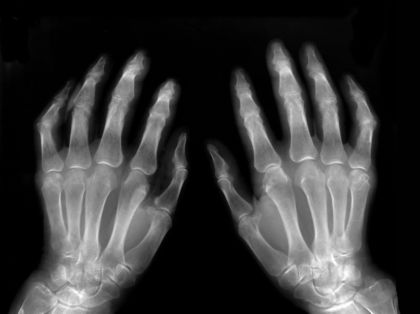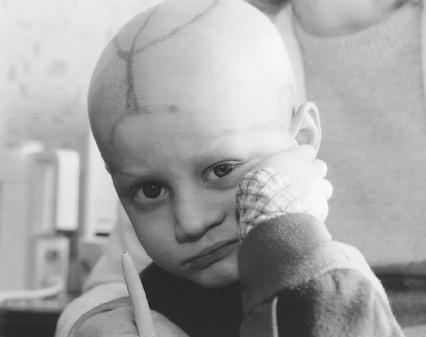Radiation Injuries - Causes

Radiation causes damage because it destroys chemicals in a cell. The cell loses its ability to function normally and dies.
Cells in tissues that are growing rapidly are more sensitive to radiation. For example, bone marrow cells in the center part of a bone are the fastest-growing


cells in the body. They are the most sensitive of all body cells to IR. The cells of a fetus are also growing very rapidly. They are also at high risk for damage from IR.
The sensitivity of various types of cells is shown below. The dose given in each case is the lowest amount of radiation that cells in the tissue can absorb without being damaged:
- Fetus: 2 Gy
- Bone marrow: 2 Gy
- Ovaries: 2–3 Gy
- Lens of the eye: 5 Gy
- A child's bone: 20 Gy
- An adult's bone: 60 Gy
- A child's muscle: 20–30 Gy
- An adult's muscle: 100 or more Gy

Comment about this article, ask questions, or add new information about this topic: